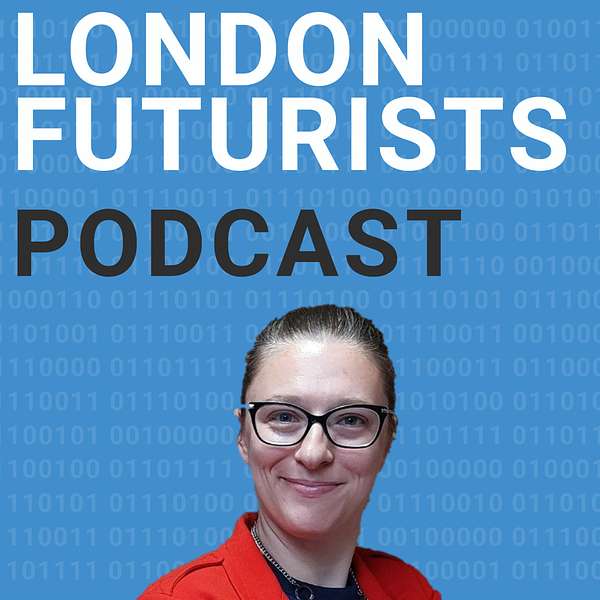
London Futurists
Anticipating and managing exponential impact - hosts David Wood and Calum Chace
Calum Chace is a sought-after keynote speaker and best-selling writer on artificial intelligence. He focuses on the medium- and long-term impact of AI on all of us, our societies and our economies. He advises companies and governments on AI policy.
His non-fiction books on AI are Surviving AI, about superintelligence, and The Economic Singularity, about the future of jobs. Both are now in their third editions.
He also wrote Pandora's Brain and Pandora’s Oracle, a pair of techno-thrillers about the first superintelligence. He is a regular contributor to magazines, newspapers, and radio.
In the last decade, Calum has given over 150 talks in 20 countries on six continents. Videos of his talks, and lots of other materials are available at https://calumchace.com/.
He is co-founder of a think tank focused on the future of jobs, called the Economic Singularity Foundation. The Foundation has published Stories from 2045, a collection of short stories written by its members.
Before becoming a full-time writer and speaker, Calum had a 30-year career in journalism and in business, as a marketer, a strategy consultant and a CEO. He studied philosophy, politics, and economics at Oxford University, which confirmed his suspicion that science fiction is actually philosophy in fancy dress.
David Wood is Chair of London Futurists, and is the author or lead editor of twelve books about the future, including The Singularity Principles, Vital Foresight, The Abolition of Aging, Smartphones and Beyond, and Sustainable Superabundance.
He is also principal of the independent futurist consultancy and publisher Delta Wisdom, executive director of the Longevity Escape Velocity (LEV) Foundation, Foresight Advisor at SingularityNET, and a board director at the IEET (Institute for Ethics and Emerging Technologies). He regularly gives keynote talks around the world on how to prepare for radical disruption. See https://deltawisdom.com/.
As a pioneer of the mobile computing and smartphone industry, he co-founded Symbian in 1998. By 2012, software written by his teams had been included as the operating system on 500 million smartphones.
From 2010 to 2013, he was Technology Planning Lead (CTO) of Accenture Mobility, where he also co-led Accenture’s Mobility Health business initiative.
Has an MA in Mathematics from Cambridge, where he also undertook doctoral research in the Philosophy of Science, and a DSc from the University of Westminster.
London Futurists
Aligning AI, before it's too late, with Rebecca Gorman
Our guest in this episode is Rebecca Gorman, the co-founder and CEO of Aligned AI, a start-up in Oxford which describes itself rather nicely as working to get AI to do more of the things it should do and fewer of the things it shouldn’t.
Rebecca built her first AI system 20 years ago and has been calling for responsible AI development since 2010. With her co-founder Stuart Armstrong, she has co-developed several advanced methods for AI alignment, and she has advised the EU, UN, OECD and the UK Parliament on the governance and regulation of AI.
The conversation highlights the tools faAIr, EquitAI, and ACE, developed by Aligned AI. It also covers the significance of recent performance by Aligned AI software in the CoinRun test environment, which demonstrates the important principle of "overcoming goal misgeneralisation".
Selected follow-ups:
- buildaligned.ai
- Article: "Using faAIr to measure gender bias in LLMs"
- Article: "EquitAI: A gender bias mitigation tool for generative AI"
- Article: "ACE for goal generalisation"
- "CoinRun: Solving Goal Misgeneralisation" - a publication on arXiv
- Aligned AI repositories on GitHub
- "Specification gaming examples in AI" - article by Victoria Krakovna
- Rebecca Gorman speaking at the Cambridge Union on "This House Believes Artificial Intelligence Is An Existential Threat" (YouTube)
Music: Spike Protein, by Koi Discovery, available under CC0 1.0 Public Domain Declaration
Hacks, scams, cyber crimes, and other shenanigans explored and explained. Presented...
Listen on: Apple Podcasts Spotify

